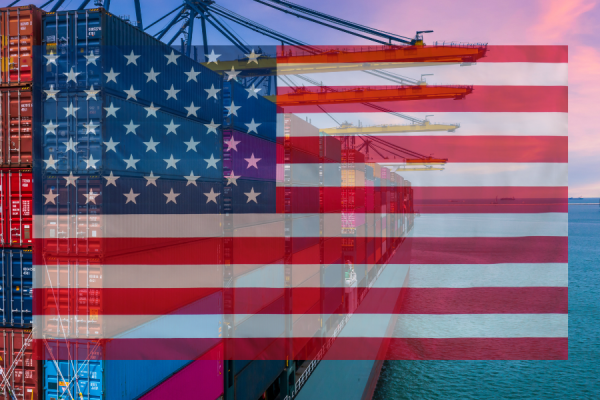
Ceri Done
Published: April 11, 2025
This Guide has been prepared to assist Members in dealing with issues that might arise and on which Members might require Club assistance if the USTR’s recommendations are implemented. What follows is a summary and this Guide will continue to be updated as matters develop. Advice in any given situation will depend heavily on individual circumstances and the terms of the applicable contract(s).
Who is Targeted
On 17 April 2025, the United States Trade Representative (“USTR”) published a revised action plan in which it detailed revised plans to impose fees on (i) Chinese vessel operators and vessel owners (see Annex I); (ii) Operators of Chinese built vessels (see Annex II); and (iii) vessel operators of foreign vehicle carriers (see Annex III), with restrictions on LNG exports to follow (see Annex IV), as detailed in four Annexes. In response to concerns, the USTR’s plan does not include the previously proposed fee based on fleet composition.
Importantly, the revised action plan also now includes definitions of key terms and tests for determining if a vessel owner or operator is Chinese or if a vessel is “Chinese built” for the purposes of the plan, although some uncertainty remains:
Annex I provides that the “vessel operator” and the “vessel owner” are the entities identified on the Vessel Entrance or Clearance Statement (U.S. Customs and Border Protection (CBP) Form 1300) as the operator and owner of the vessel respectively. However, Form 1300 does not expressly define these terms.
Form 1300 defines “operator” by reference to the entity listed on the Certificate of Financial Responsibility (COFR), which will likely be the vessel’s registered owner or a bareboat charterer.
Form 1300 does not expressly define “owner” but this will likely be the vessel’s registered owner.
It is possible that other entities could be deemed to be the vessel owner or operator, depending on the specific ownership and operational structure of the subject vessel.
An owner or operator will be a “vessel owner / operator of China” if the relevant entity is a citizen of China; is headquartered in China; is owned or controlled by citizens of China; is owned or controlled by or is subject to the jurisdiction of China; or is owned or controlled by an entity listed as a Chinese Military Company. An entity can be owned or controlled by or subject to the jurisdiction of China if only 25 percent of its outstanding voting interest, board seats or equity interest is held directly or indirectly by persons or entities that are a national resident of China.
For these purposes “China” includes the People’s Republic of China, Hong Kong and Macau.
A vessel will be a “Chinese built vessel” if the place of build in Form 1300 is recorded as the People’s Republic of China.
The fee on operators of Chinese built vessels only applies if other fees prescribed in Annex I, III and IV do not already apply.
The definitions and tests for a vessel owner or operator of China could result in increased due diligence burdens when chartering vessels for voyages to the U.S., potentially encompassing beneficial as well as registered owners, and other parent company structures, bearing in mind the indirect equity interest test in Annex I.
If trading to the U.S., Members are encouraged to familiarise themselves with the annexes to the USTR’s revised action plan and to consider the terms of their charterparty contracts in case liability for the fees can be passed on.
Who Pays?
Under Annexes I to III, it is the vessel operator that will be responsible for calculating and paying the applicable fee, with the important clarification that a vessel will only be charged once, on entry to the first U.S. port or place for the voyage and only for the first 5 calls in a year. However, parties to the voyage might have separately agreed who should ultimately bear the cost. How liability for the fees is allocated will depend on the wording of the specific charterparty contract in question and how the fees are calculated. Where the fees are calculated on the vessel’s net tonnage (Annex I, III and IV), they might be considered a tax / due / charge on the vessel, but where they are calculated per container (Annex II) then they might be considered a tax / due / charge on the cargo.
Time Charter
If the fees are deemed a “tax” or “due” on either the vessel or the owners, then the charterparty might allocate liability to the charterers (e.g. Cl. 37 of the NYPE 93 form, Cl. 40 of the NYPE 2015 form). The fees might also constitute port charges. Under English law, the term “port charges” does not have any special meaning and refers to the broad range of charges that a vessel has to pay before leaving port. Generally speaking, under a time charter the port charges will be for the charterers’ account (e.g. Cl. 7 of the NYPE 1993 and 2015 forms and Cl. 7 of the Shelltime 4 form). The fees might also be caught under a sweep up provision such as “Charterers shall provide and pay for ….all other usual expenses” and so be for charterers’ account, or be claimed by owners from charterers under an implied indemnity. However, given the high value of the fees, disputes might arise as to how they are characterised under the relevant charterparty but where they are imposed as a consequence of the charterers’ orders to sail to a port in the U.S., they are likely to be for the charterers’ account under a time charterparty.
Voyage Charter
As above, if the fees are deemed a “tax” or “due” then generally speaking, dues, charges and taxes on the vessel are for the owners’ account (e.g. Cl. 13(a) of the GENCON 1994 form, Cl. 6(1) of the Shellvoy6 form and Cl. 12 of the Asbatankvoy form) and dues, charges, duties and taxes on cargo or freight are for the charterers’ account (e.g. Cl. 13(b) of the GENCON form 1994, Cl. 6(1) of the Shellvoy6 form and Cl. 12 of the Asbatankvoy form)
If the fees are calculated on the vessel’s net tonnage, then they are likely to be a due / tax / charge on the vessel and be for the owners’ account. However, if the fees are calculated on the total number of containers discharged at a U.S. port (see Annex II), then they might constitute a due / tax / charge levied on the cargo and be for the charterers’ account.
It is possible that terms covering the freight rate and calculation of freight might preclude owners from seeking to pass on liability for the fee down the chain to a voyage charterer, if that is otherwise possible.
If the charterparty is on the Asbatankvoy form, then Cl. 12 includes a provision placing responsibility on the charterers for “any unusual taxes, assessments and governmental charges which are not presently in effect but which may be imposed in the future on the Vessel or freight”. If the charterparty was concluded before the USTR published its revised plan on 17 April 2025, then the fees might be for the charterers’ account under this wording (albeit if the charterparty is performed before 14 October 2025 the fee will be rated at USD 0), whereas for charterparties concluded after 17 April they will likely be for the owners’ account.
Delay
Beyond liability for the subject fees, their imposition could also lead to delay whilst the fees are calculated and settled:
Time Charter – Disputes might arise as to whether or not the vessel is on hire during any period of delay (and loss of time) whilst these fees are settled. If, under the relevant charterparty, liability for the fees rests with the charterers (as a tax / due / port charge etc.), then the vessel is likely to remain on hire to the charterers.
Voyage Charter – Disputes might arise as to whether or not laytime / time on demurrage is suspended for any period of delay whilst these fees are settled. If, under the relevant charterparty, the fees are for owners’ account then laytime / time on demurrage could be suspended for any period of delay. Conversely, if the fees are for charterers’ account, then any period of delay could fall within the laytime regime or give rise to a separate claim for damages for detention.
Frustration and Force Majeure
Issues of Frustration and Force Majeure might also arise and will depend on the precise facts and specific contractual terms involved. Frustration is a common law concept relevant to all contracts subject to English law and might arise where, without fault on either side, the contract becomes impossible to perform, or its performance would be radically different to what the parties originally contemplated. Whether or not the imposition of these fees could lead to a frustration event will very much depend on the specific facts and terms of the charterparty contract involved.
Force Majeure is not a common law concept and will therefore only apply to charterparty contracts that are subject to English law if the charterparty includes a specific Force Majeure provision. Thereafter, whether or not the parties have the right to excuse their performance or a delay in their performance of obligations under the charterparty will depend on the wording of the Force Majeure provision and the specific facts involved.
Deviation
It is possible that a vessel bound for a port(s) in the United States is deviated so as to avoid these fees, possibly in order to discharge the cargo outside of the United States, or so as to create a short sea voyage of less than 2,000nm if the vessel is a Chinese built vessel. Any such deviation could constitute a breach of employment orders and obligations under a time charter, an unjustified deviation and breach of obligations under a voyage charter, and also a breach of the carrier’s obligations under bills of lading, all of which could lead to disputes. Members should also consider that such a deviation could prejudice their Club cover and are advised to discuss any proposed deviation with the Club first.
Other Potential Charterparty Points to Consider
If the vessel puts into a U.S. port for causes for which the owners or the vessel are responsible, then the fees are likely to be for the owners’ account.
The possibility that the fees will be for a charterers’ account under a charterparty under negotiation is potentially an additional point for an owner to consider when evaluating financial risks arising from the fixture.
Parties to long term time charterparties or COAs might consider including express terms that deal with changes of share ownership, voting rights, board membership for the relevant owner / operator entity and any parent company to cover the possibility that any such changes after contracting cause the owner / operator entity to become a vessel owner / operator of China under Annex I and thus liable to the fees.
Whilst outside the scope of these fees, parties negotiating long term charterparty contracts might now consider including terms that deal with the imposition of similar fees or tariffs in the future, by way of a suitably worded ‘material change of circumstance” type clause, that would either allocate the risk or give rise to other rights and remedies, such as variations to hire rates or freight terms, or to trading limits.
Please note that the above is intended as a general outline for guidance only. For advice in connection with a specific issue relating to the above, Members can of course refer to their usual contacts at the Club.


